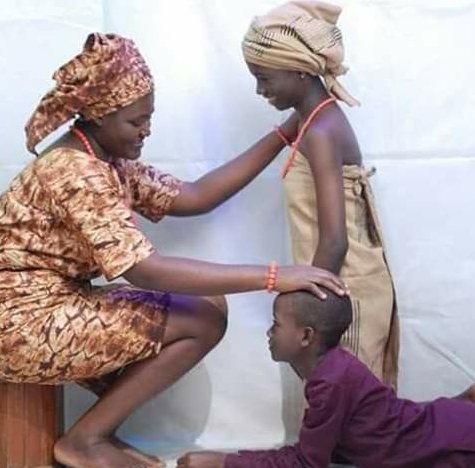
support@yorubalibrary.com
+2348073529208, 07038599574

The Yoruba people, one of the largest ethnic groups in Nigeria, are renowned for their rich cultural heritage and deeply ingrained traditions. Understanding Yoruba etiquette and customs is essential for anyone seeking to engage meaningfully with this community. From greetings to social ceremonies, these practices reflect the values and beliefs that have been preserved over centuries.
The Importance of Greetings in Yoruba Culture
Greetings hold a significant place in Yoruba etiquette. They are not just formalities but expressions of respect and acknowledgment. When meeting someone, it is customary to offer a greeting that suits the time of day. "E kaaro" (Good morning), "E kaasan" (Good afternoon), and "E kuurole" (Good evening) are commonly used.
Men often prostrate or bow slightly, while women may kneel or curtsy as a sign of respect, especially when greeting elders. Failing to greet properly can be seen as disrespectful and may lead to social friction.
Respect for Elders
Respect for elders is a cornerstone of Yoruba customs. Elders are treated with high regard, and their advice and opinions are valued. When speaking to an elder, it is important to use polite language and avoid direct eye contact, which can be considered disrespectful. Children are taught from a young age to show deference to older individuals, reinforcing the communal respect for age and wisdom.
Traditional Attire and Its Significance
Yoruba traditional attire is not just about aesthetics; it carries deep cultural significance. The "Aso Ebi" (family cloth) is worn during special occasions to symbolize unity and solidarity among family members. Men typically wear traditional attire like "Agbada," a flowing gown, or "Buba" and "Sokoto," while women adorn "Iro" (wrapper) and "Buba" (blouse), often complemented by a head tie called "Gele."
These garments are often made from vibrant fabrics like Ankara, lace, or Aso-Oke, each with unique patterns and colors that convey different meanings and statuses.
The Role of Festivals and Ceremonies
Festivals and ceremonies are pivotal in Yoruba culture, serving as occasions for communal bonding and the reinforcement of traditions. Events like the "Egungun" festival honor ancestors, while the "Oro" festival celebrates male deities and involves intricate rituals and masquerades.
During these festivals, it is customary to partake in traditional dances, music, and feasts. Participation in these events is not only a form of entertainment but also a way of preserving and transmitting cultural values across generations.
Marriage Customs
Yoruba marriage customs are elaborate and steeped in tradition. The process begins with a formal introduction called "Mo mi n mo e," where the groom's family visits the bride's family. This is followed by the "Idana" (engagement ceremony), which involves the exchange of gifts and the payment of the bride price.
The wedding itself, "Igbeyawo," is a colorful affair, featuring traditional music, dance, and attire. The couple often receives blessings from elders, and various rituals are performed to ensure a prosperous union.
Naming Ceremonies
Naming ceremonies, known as "Isomoloruko," are important rites of passage in Yoruba culture. Held on the eighth day after a child's birth, the ceremony involves family and friends who gather to witness the naming of the child. Elders play a crucial role, often bestowing names that reflect the family's hopes and aspirations for the child.
Each name carries specific meanings, and multiple names may be given, each reflecting different aspects of the child's identity and heritage.
Conclusion
Yoruba etiquette and customs are deeply rooted in respect, community, and tradition. From the importance of greetings to the significance of traditional attire and the elaborate nature of festivals and ceremonies, these practices offer a window into the values and social norms of the Yoruba people. Understanding and honoring these customs is essential for fostering meaningful interactions and appreciating the rich cultural heritage of the Yoruba community.

Learn about the Yoruba concept of Ìwà Pẹ̀lẹ́ (good…

Learn special praises for Divine Being and Creator…